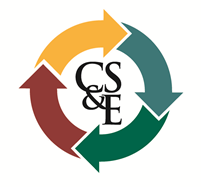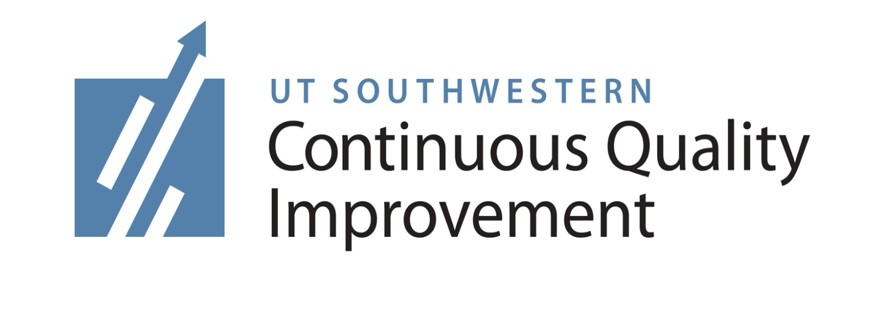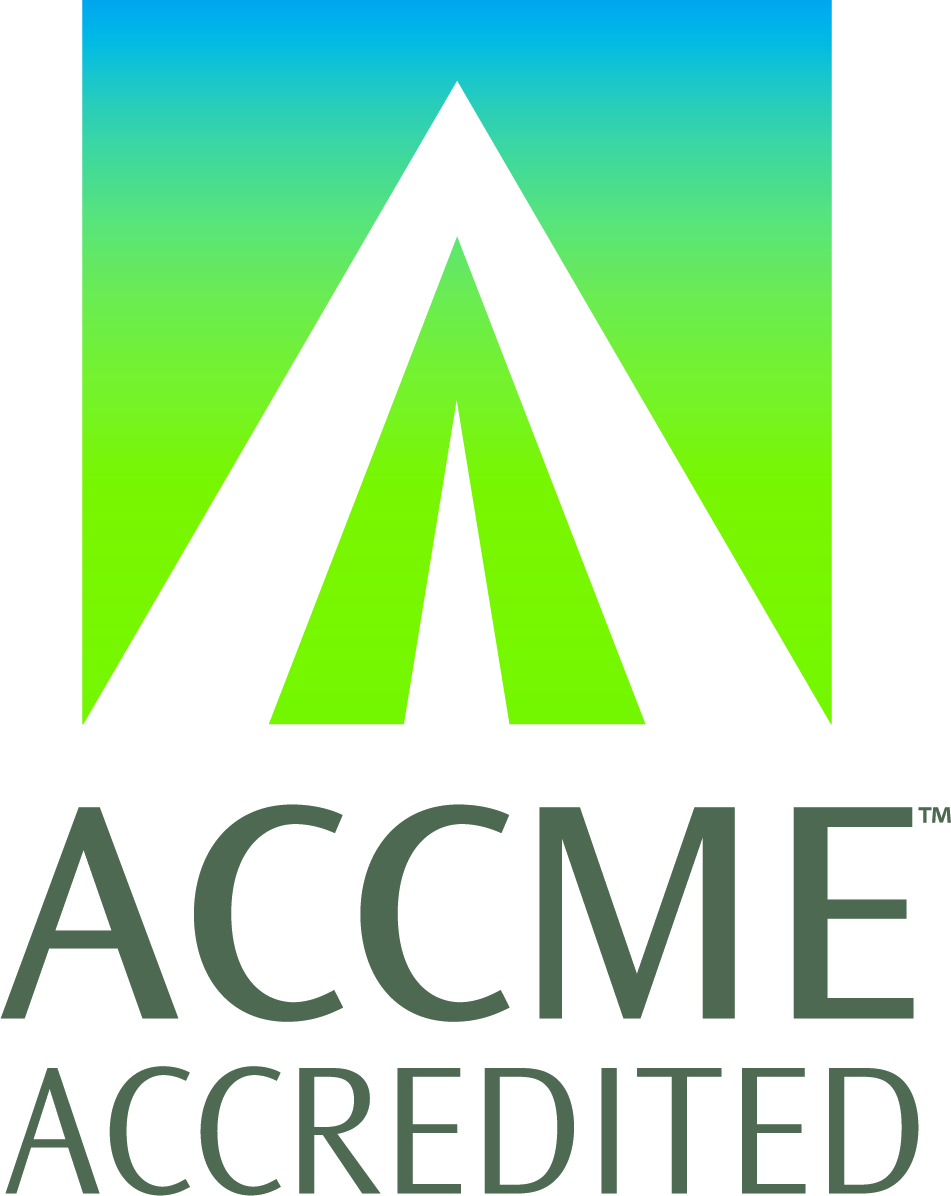
Clinical Safety & Effectiveness Course 20 (RP1808C)
 The purpose of the Clinical Safety & Effectiveness (CS&E) course is to provide physicians, other key clinicians and administrators the skills, knowledge, and tools necessary to lead quality improvement projects and change initiatives designed to improve patient outcomes. During the CS&E course, participants are provided with a working knowledge of various quality improvement methodologies and tools that can be used to identify healthcare delivery improvement opportunities. Participants are required to complete a quality improvement project and present their findings during the last day of the course. Course topics include development of a project aim statement, use of PDCA or DMAIC as process improvement tools, process mapping, control charts, root cause analysis, team development, and change management.
The purpose of the Clinical Safety & Effectiveness (CS&E) course is to provide physicians, other key clinicians and administrators the skills, knowledge, and tools necessary to lead quality improvement projects and change initiatives designed to improve patient outcomes. During the CS&E course, participants are provided with a working knowledge of various quality improvement methodologies and tools that can be used to identify healthcare delivery improvement opportunities. Participants are required to complete a quality improvement project and present their findings during the last day of the course. Course topics include development of a project aim statement, use of PDCA or DMAIC as process improvement tools, process mapping, control charts, root cause analysis, team development, and change management.
Target Audience
The target audience for this program includes physicians, nurses, pharmacists, therapists, technologists, other healthcare providers and health system leaders who are committed to the implementation, development, and maintenance of change initiatives in their departments and organizations.
Learning Objectives
At the conclusion of this activity, the participant should be able to:
- Describe Quality Improvement (QI) including the case for continuous quality improvement, what is quality and who defines it, voice of the customer and lessons from industry, our current state, and equitable medical care and public health policy.
- Describe the use of a project charter, project evaluation tools, and basic process analysis.
- Discuss and receive feedback on QI project Aim Statements.
- Describe how change is applied in complex organizations and the basics of team management utilizing examples of good teams.
- Describe the application of change management and team dynamics as they relate to process improvement projects in the healthcare setting.
- Apply change management principals including managing change and the change acceleration process through working with a team in their course improvement project.
- Describe AHRQ TeamSTEPPS with focus on leadership, communication errors, direction and recovery, teamwork and mutual support and situation awareness.
- Manage and/or participate in an improvement project utilizing PDCA, Lean, or DMAIC methods.
- Apply quality tools to the chose improvement area (as applicable in the course improvement project) to define the issue to be improved, define applicable measures, collect data, analyze selected measures, and perform root cause analysis.
- Describe the use of Lean methodology in process improvement activities.
- Demonstrate process evaluation and analysis techniques as applicable to their course project such as brainstorming, affinity diagrams, control charts, process mapping, histograms, pareto analysis, cause and effect diagrams, prioritization matrices, Lean management tools, root cause analysis tools, data types, data collection methods including sampling and Failure Mode and Effects and Analysis (FMEA).
- Describe why quality is an imperative for organizational survival and is a core business strategy for healthcare.
- Describe the quality improvement process as a pragmatic science that gathers evidence, defines causes, implements changes, and measure results over time.
- Describe statistics, statistical control, and variation including standard deviation, process capability, confidence and probability, distribution, correlation and causation, dependent and independent variables, and hypothesis development and testing in their application to improvement projects.
- Describe and apply the use of electronic data in quality improvement projects.
- Describe process standardization, synergistic partnerships in improvement activities, and sustaining improvements over the longer term.
Click here to view Syllabus and Faculty Disclosures
Complete CME Course Evaluation
Claim MOC Part 2 Credits
| Clinical Safety and Effectiveness | ||
| Course 20 | ||
| Day 1 March 9, 2018 | Location: NG3.112 | |
| Time | Title | Faculty |
| 7:30 – 8:00AM | Breakfast | |
| 8:00 – 10:15 | Introduction, History, and Science of Quality Improvement | Gary Reed |
| 10:15 – 10:30 | Break | |
| 10:30 – 12:00 | Quality Improvement Projects, Quality Tools, and Quality Improvement versus Research | Pat Griffith |
| 12:00 – 1:00 | Lunch – ON YOUR OWN | |
| 1:00 – 2:00 | Team Huddles | Teams |
| 2:00 – 3:30 | Understanding Variation and Data Collection | Gary Reed |
| Day 2 March 23, 2018 | Location: NG3.112 | |
| Time | Title | Faculty |
| 8:00 – 10:00 AM | Leadership for Quality and Safety | James Reinertsen |
| 10:00 – 10:15 | Break | |
| 10:15 – 12:00 | Leadership for Quality and Safety | James Reinertsen |
| 12:00 – 1:00 PM | Lunch – ON YOUR OWN | |
| 1:00 – 2:30 | Leadership for Quality and Safety | James Reinertsen |
| 2:30 – 2:45 | Break | |
| 2:45 – 3:45 | Root Cause Analysis (RCA) | Rustin Morse |
| Day 3 April 20, 2018 | Location: NG3.112 | |
| Time | Title | Faculty |
| 7:30 – 8:00AM | Breakfast | |
| 8:00 – 10:00 | Quality Tools | Pat Griffith |
| 10:00 – 10:15 | Break | |
| 10:15 – 10:45 | Alumni Presentation | Mike Mayo |
| 10:45 – 11:45 | Process Mapping | Pat Griffith |
| 11:45 – 12:45 | Lunch – ON YOUR OWN | |
| 12:45 – 2:00 | Cognitive Errors | Oren Guttman |
| 2:00 – 2:15 | Break | |
| 2:15 – 3:00 | Cognitive Errors (continued) | Oren Guttman |
| Day 4 May 11, 2018 | Location: NG3.202 | |
| Time | Title | Faculty |
| 7:00 – 7:30 | Breakfast | |
| 7:30 – 9:00 | Change Management | Suzanne Farmer |
| 9:00 - 9:15 | Break | |
| 9:15 – 11:15 | AHRQ TeamSTEPPS – Leadership | Oren Guttman |
| 11:15 – 12:15 | AHRQ TeamSTEPPS – Communication Errors, Direction, & Recovery | Oren Guttman |
| 12:15 – 1:00 | Lunch – ON YOUR OWN | |
| 1:00 – 2:30 | AHRQ TeamSTEPPS – Teamwork & Mutual Support | Oren Guttman |
| 2:30 – 2:45 | Break | |
| 2:45 – 4:00 | AHRQ TeamSTEPPS – Situation Awareness | Oren Guttman |
| Day 5 June 15, 2018 | Location: NG3.112 | |
| Time | Title | Faculty |
| 7:30 – 8:00 | Breakfast | |
| 8:00 – 9:30 | Conflict Resolution | Lauren Smith |
| 9:30 – 9:45 | Break | |
| 9:45 – 11:45 | High Reliability Organizations and Health Care | Robert Hendler |
| 11:45 – 12:45 | Lunch – ON YOUR OWN | |
| 12:45 – 1:00 | Quality Improvement – Airlines Video | |
| 1:00 – 2:00 | Servant Leadership | Bob Ferguson |
| 2:00 – 3:30 | Cost of Quality, ROI, Making Improvement Last, and Creating Presentations and Posters | Pat Griffith |
| Day 6 July 18, 2018 | Location: NG3.202 | |
| Time | Title | Faculty |
| 7:30 – 8:00 | Breakfast | |
| 8:00 – 10:00 | Lean | Pat Griffith and Kathy Price |
| 10:00 – 10:15 | Break | |
| 10:15 – 12:00 | Lean | Pat Griffith and Kathy Price |
| 12:00 – 1:00 | Lunch – ON YOUR OWN | |
| 1:00 – 2:45 | Lean | Pat Griffith and Kathy Price |
| 2:45 – 3:00 | Break | |
| 3:00 – 4:30 | Lean | Pat Griffith and Kathy Price |
| Day 7 July 27, 2018 | Location: NG3.112 | |
| Time | Title | Faculty |
| 8:15 – 10:00 | Quality: An Imperative for Organizational Survival – Part 1 | Brent James |
| 10:00 – 10:15 | Break | |
| 10:15 – 12:00 | Quality: An Imperative for Organizational Survival – Part 2 | Brent James |
| 12:00 – 1:00 | Lunch – OWN YOUR OWN | |
| 1:00 – 3:00 | Quality: An Imperative for Organizational Survival – Part 3 | Brent James |
| 3:00 – 3:15 | Break | |
| 3:15 – 5:00 | Quality: An Imperative for Organizational Survival – Part 4-5 | Brent James |
| Day 8 August 17, 2018 | Location: NG3.112 | |
| Team presentations and graduation | ||
Course Director:
Gary Reed, M.D., M.S., FACP
Associate Dean Quality, Safety & Outcomes Education,
Headmaster, UT Southwestern Academic Colleges
Co-Course Director:
Patrice Griffith, MT (ASCP), M.B.A.
Director, Quality, Safety & Outcomes Education
ACCREDITATION AND CREDIT DESIGNATION STATEMENTS
 The University of Texas Southwestern Medical Center is accredited by the Accreditation Council for Continuing Medical Education (ACCME) to provide continuing medical education for physicians.
The University of Texas Southwestern Medical Center is accredited by the Accreditation Council for Continuing Medical Education (ACCME) to provide continuing medical education for physicians.
The University of Texas Southwestern Medical Center designates this educational activity for a maximum of 45.75 AMA PRA Category1 Credits™. Physicians should only claim credit commensurate with the extent of their participation in the activity.
The University of Texas Southwestern Medical Center certifies that non-physicians will receive an attendance certificate stating that they participated in the activity that was designated for 45.75 AMA PRA Category 1 Credits™.
Maintenance of Certification (MOC) Part 2 Credit
![]() Successful completion of this CME activity, which includes participation in the evaluation component, enables the participant to earn up to 45.75 MOC points and patient safety MOC credit in the American Board of Internal Medicine's (ABIM) Maintenance of Certification (MOC) program. Participants will earn MOC points equivalent to the amount of CME credits claimed for the activity. It is the CME activity provider's responsibility to submit participant completion information to ACCME for the purpose of granting ABIM MOC credit.
Successful completion of this CME activity, which includes participation in the evaluation component, enables the participant to earn up to 45.75 MOC points and patient safety MOC credit in the American Board of Internal Medicine's (ABIM) Maintenance of Certification (MOC) program. Participants will earn MOC points equivalent to the amount of CME credits claimed for the activity. It is the CME activity provider's responsibility to submit participant completion information to ACCME for the purpose of granting ABIM MOC credit.
![]() This activity contributes to the patient safety CME requirement for the CME component of the American Board of Anesthesiology’s® (ABA) redesigned Maintenance of Certification in Anesthesiology™ (MOCA®) program, known as MOCA 2.0®. Please consult the ABA website, www.theABA.org, for a list of all MOCA 2.0 requirements. Maintenance of Certification in Anesthesiology™ program and MOCA® are registered trademarks of The American Board of Anesthesiology®. MOCA 2.0® is a trademark of The American Board of Anesthesiology®.
This activity contributes to the patient safety CME requirement for the CME component of the American Board of Anesthesiology’s® (ABA) redesigned Maintenance of Certification in Anesthesiology™ (MOCA®) program, known as MOCA 2.0®. Please consult the ABA website, www.theABA.org, for a list of all MOCA 2.0 requirements. Maintenance of Certification in Anesthesiology™ program and MOCA® are registered trademarks of The American Board of Anesthesiology®. MOCA 2.0® is a trademark of The American Board of Anesthesiology®.
 Successful completion of this CME activity, which includes participation in the activity, with individual assessments of the participant and feedback to the participant, enables the participant to earn 45.75 MOC points in the American Board of Pediatrics’ (ABP) Maintenance of Certification (MOC) program. It is the CME activity provider’s responsibility to submit participant completion information to ACCME for the purpose of granting ABP MOC credit.
Successful completion of this CME activity, which includes participation in the activity, with individual assessments of the participant and feedback to the participant, enables the participant to earn 45.75 MOC points in the American Board of Pediatrics’ (ABP) Maintenance of Certification (MOC) program. It is the CME activity provider’s responsibility to submit participant completion information to ACCME for the purpose of granting ABP MOC credit.
Available Credit
- 45.75 AMA
- 45.75 Attendance

 Facebook
Facebook X
X LinkedIn
LinkedIn Forward
Forward